History: When Black Men Ruled The World - Education (7) - Nairaland
Nairaland Forum / Nairaland / General / Education / History: When Black Men Ruled The World (69194 Views)
List Of Ooni That Ruled Ile Ife / Black Men Need Moreeducation To Get The Samejobs As Whites (2) (3) (4)
(1) (2) (3) (4) (5) (6) (7) (8) (9) (10) ... (13) (Reply) (Go Down)
| Re: History: When Black Men Ruled The World by Nobody: 4:02pm On Nov 16, 2014 |
2 Likes |
| Re: History: When Black Men Ruled The World by nora544: 4:04pm On Nov 16, 2014 |
SirShymex: When you read the the wikipedia link then you will see that where they got the academic references! Hebrew (/ˈhiːbruː/; עִבְרִית ʿIvrit [ʔivˈʁit] ( listen) or [ʕivˈɾit] ( listen)) is a West Semitic language of the Afroasiatic language family. Historically, it is regarded as the language of the Hebrew Israelites and their ancestors, although the language was not referred to by the name Hebrew in the Tanakh.[note 2] The earliest examples of written Paleo-Hebrew date from the 10th century BCE, in the form of primitive drawings, although "the question of the language used in this inscription remained unanswered, making it impossible to prove whether it was in fact Hebrew or another local language".[9] Hebrew had ceased to be an everyday spoken language somewhere between the first and fourth centuries CE[10] and survived into the medieval period only as the language of Jewish liturgy and rabbinic literature. Then, in the 19th century, it was revived as a spoken and literary language, and, according to Ethnologue, is now the language of 9 million people worldwide,[11][12] of whom 7 million are from Israel.[3][13] The United States has the second largest Hebrew speaking population, with about 221,593 fluent speakers,[14] mostly from Israel. http://en.wikipedia.org/wiki/Hebrew_language we have now pld hebrew and modern hebrew the same is with many languages we have this here in europa with many languages because when you read the wiki links i post than you will see that every language make a change during the centuries and I can tell you we have old english and new english, we have old german which is very close to english and we have modern german. |
| Re: History: When Black Men Ruled The World by ayoolastowe(m): 4:08pm On Nov 16, 2014 |
ROTFL!wot goes around cums around,like a hoola hoop. francleanflexy: |
| Re: History: When Black Men Ruled The World by nora544: 4:08pm On Nov 16, 2014 |
SirShymex: Encounters between Europeans north of the Alps and Africans had until the 18th century rarity . Although lived and fought in the Roman period also black Africans as soldiers of the Roman army in central Europe , but this ended with the time of the migration . In the Middle Ages and the early modern period are pictorial representations of people with black skin color north of the Alps , therefore, a notable exception , while in the Italian states such as the Republic of Venice , the contact with Africa never demolished . |
| Re: History: When Black Men Ruled The World by Nobody: 4:09pm On Nov 16, 2014 |
nora544: From your own quote, it asserted that Hebrew stopped being an everyday language around around first to fourth centuries. Also, are today's Hebrew speakers the real Hebrew folks? Absolutely not. Majority of today's Hebrew speakers are Ashkenazi Jews, from your country (Austro-German). And they're European converts. Hence I said Hebrew is inconsequential. |
| Re: History: When Black Men Ruled The World by Nobody: 4:12pm On Nov 16, 2014 |
. |
| Re: History: When Black Men Ruled The World by Nobody: 4:13pm On Nov 16, 2014 |
nora544: Nah, it wasn't a rarity. There were contacts from pre-historic times. We know about the Hyskos in Egypt, and it's well documented. A lot of ancient Greek scholars also lived in ancient Egypt (well documented). Heck, some Greeks were negroes. Then you have the Hannibal era with Carthage. Heck, Hannibal's father built another Carthage in Spain. So, there has always been contacts. Come on, they were black nobility all over medieval Europe - and also black popes. 1 Like |
| Re: History: When Black Men Ruled The World by Nobody: 4:14pm On Nov 16, 2014 |
[s] propeller1:[/s] Phaggot, stop quoting me. Can't you see I'm ignoring you? I don't waste time on airheads - scram!  |
| Re: History: When Black Men Ruled The World by Ignatio(m): 4:15pm On Nov 16, 2014 |
It's better to call me and my Black brothers Moors than nigger or nigga (still the same) |
| Re: History: When Black Men Ruled The World by Nobody: 4:16pm On Nov 16, 2014 |
. |
| Re: History: When Black Men Ruled The World by sukkot: 4:18pm On Nov 16, 2014 |
SirShymex:drop that knowledge chief. the first popes were black. black men created the roman catholic church during the holy roman empire ushered in by septemius severus a black man who conquered all of what is now called europe today 1 Like 1 Share |
| Re: History: When Black Men Ruled The World by Nobody: 4:20pm On Nov 16, 2014 |
SirShymex: I think you are trying to be who you are not by making blacks people who they are not. All African popes were Berbers of the North Africa. Nothing like black popes in a nutshell. |
| Re: History: When Black Men Ruled The World by Nobody: 4:21pm On Nov 16, 2014 |
Joavid:aren't majority in nigeria educated. The people I deal with daily be it rich or poor have been to school at some point in their lives. Is education really our problem? I disagree. 1 Like |
| Re: History: When Black Men Ruled The World by Nobody: 4:23pm On Nov 16, 2014 |
sukkot: Have it, primitive man! http://en.wikipedia.org/wiki/List_of_popes |
| Re: History: When Black Men Ruled The World by Nobody: 4:25pm On Nov 16, 2014 |
SirShymex:why? is it because you just received your biweekly welfare cheque? I notice that you are always happy and motivated every two weeks . after blowing your welfare allowance on crack cocaine and BET365 sports betting ,you come down your high horse .the cycle goes on and on. better do something worthwhile with your life.you Jobless freak always claiming what you are not on this forum. don't make me expose everything about you including your photos. |
| Re: History: When Black Men Ruled The World by sukkot: 4:27pm On Nov 16, 2014 |
all4naija:thats a whitewashed list. the same man who told you jesus is white and the jews are white is the same man who created that fake list. its done to promote white superiority. but you wouldnt know nothing about that because you are one of the victims of the lies  1 Like |
| Re: History: When Black Men Ruled The World by InvertedHammer: 4:28pm On Nov 16, 2014 |
/ I get am before no be property \ |
| Re: History: When Black Men Ruled The World by Nobody: 4:28pm On Nov 16, 2014 |
sukkot: Yes, Septemius Severus was a black man. Definitely the greatest black man in the history of Black Brits. This is from the British Museum: Marble statue of the emperor Septimius Severus Roman, about AD 193-200 Found at Alexandria, Egypt 'It is good to see the statue of Septimius Severus, the first African emperor of the Romans, on display. He is seen by many as a very important figure in the historical timeline of black people in Britain. He died and was buried at York. It is the only image of Septimius Severus I've seen to date that shows him with the features and looks of a North African. Seeing this statue in this gallery makes me feel that at last the African presence in ancient Britain is being acknowledged.' Fowokan George Kelly, of Jamaican origin Septimius Severus was the first Roman Emperor born in Africa. He ruled between AD 193 and 211. Although his family was of Phoenician rather than black African descent, ancient literary sources refer to the dark colour of his skin and relate that he kept his African accent into old age. He was an accomplished general who, having defeated his internal enemies in a series of civil wars, went on to victories at the furthest frontiers of the Empire, from Mesopotamia to Britain, where he died, at York (Eboracum) in AD 211. He is shown with his characteristic forked beard and tight curled hair, and is wearing military dress. The statue is not carved fully in the round, but is flat and unfinished at the back, suggesting that it was part of an architectural design. It probably stood in a niche which decorated a public building or monument such as a bath building or a fountain-screen. Much of the statue's detail would have been added in paint. Severus' two sons Caracalla and Geta were instructed by their father on his death-bed to 'pay the troops, get on with each other and ignore everyone else'. Within a year, however, Caracalla had murdered his brother and reigned alone, with all vestiges of Geta's image and name removed from buildings, official inscriptions and dedications; a process known as 'Damnatio Memoriae'. A.H Smith, A catalogue of sculpture in -2, vol. 3 (London, British Museum, 1904) C. Scarre, Chronicle of the Roman emperor (London, Thames & Hudson, 1997) http://www.britishmuseum.org/explore/highlights/highlight_objects/gr/m/statue_septimius_severus.aspx 1 Like |
| Re: History: When Black Men Ruled The World by sukkot: 4:30pm On Nov 16, 2014 |
SirShymex:now thats wassup. keep dropping them jewels Shymmex 1 Like |
| Re: History: When Black Men Ruled The World by Nobody: 4:33pm On Nov 16, 2014 |
[size=15pt]Emblems and family crests of Moorish families who were the aristocracy of European society:[/size] ........................................ 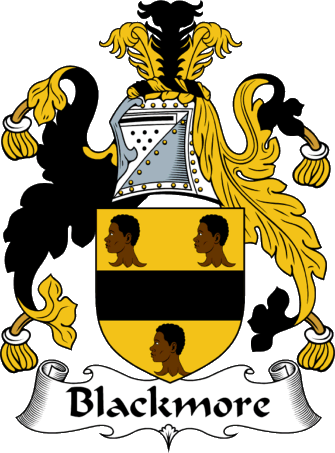 .....................................  .......................................  ........................................  ..........................................[img]http://www.goodmawn.in/wp-content/uploads/2011/12/545px-COA_family_fr_Favre_Savoy.svg-272x300.png[/img] .......................................[img]http://www.goodmawn.in/wp-content/uploads/2011/12/benedict_coat_of_arms.gif[/img] ........................................[img]http://www.goodmawn.in/wp-content/uploads/2011/12/Skofja.jpg[/img] .......................................[img]http://www.goodmawn.in/wp-content/uploads/2011/12/717px-Blason_Charles_Le_Goux_de_La_Berchere.svg-300x251.png[/img] ........................................[img]http://www.goodmawn.in/wp-content/uploads/2011/12/0001photo-240x300.jpg[/img] ........................................ 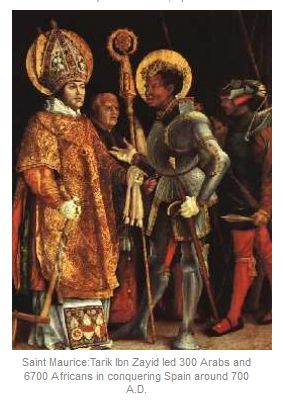 ....................................... 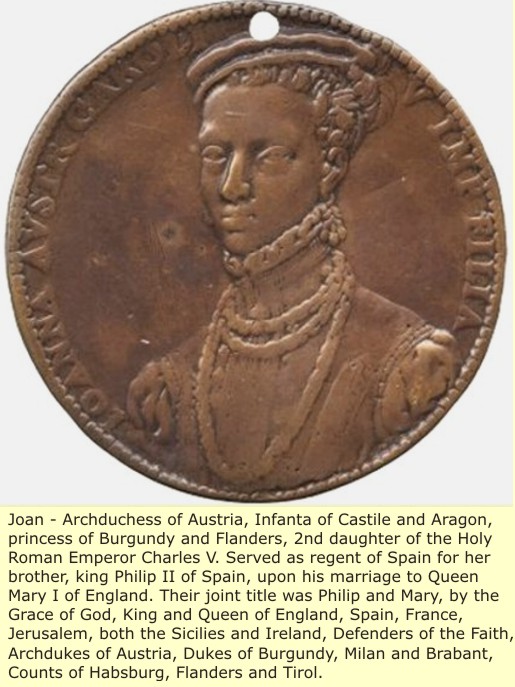 ................................ 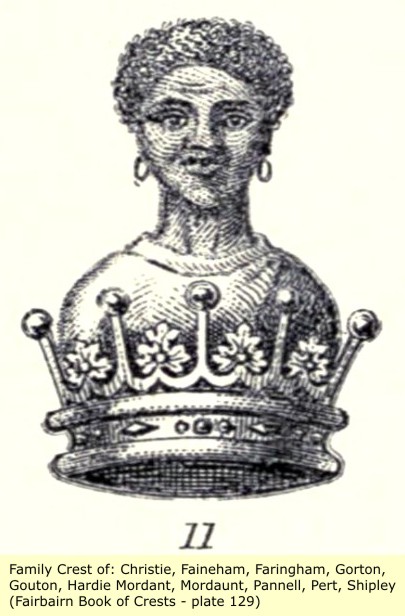 ...........................  ...............................  1 Like |
| Re: History: When Black Men Ruled The World by Nobody: 4:35pm On Nov 16, 2014 |
[size=16pt]12 Great African Inventions That Changed The World[/size] 1 Speech The first words by humans were spoken by Africans. ''Using statistical methods to estimate the time required to achieve the current spread and diversity in modern languages today, Johanna Nichols — a linguist at the University of California, Berkeley — argues that vocal language must have arisen in our species at least 100,000 years ago. Using phonemic diversity, a more recent analysis offers directly linguistic support for a similar date. Estimates of this kind are independently supported by genetic, archaeological, palaeontological and much other evidence suggesting that language probably emerged somewhere in sub-Saharan Africa during the Middle Stone Age, roughly contemporaneous with the speciation of Homo sapiens.'' http://en.wikipedia.org/wiki/Origin_of_language 2 Writing In 1999, Archaeology Magazine reported that the earliest Egyptian hieroglyphs date back to 3400 BCE which "...challenge the commonly held belief that early logographs, pictographic symbols representing a specific place, object, or quantity, first evolved into more complex phonetic symbols in Mesopotamia." Who were these original Egyptians? The Greek historian Herodotus.. described the Colchians of the Black Sea shores as "Egyptians by race" and pointed out they had "black skins and kinky hair." Apollodorus, the Greek philosopher, described Egypt as "the country of the black-footed ones" and the Latin historian Ammianus Marcellinus said "the men of Egypt are mostly brown or black with a skinny desiccated look." http://www.bbc.co.uk/worldservice/specials/1624_story_of_africa/page88.shtml In his book 'Egypt', British scholar Sir E.A. Wallis Budge says: "The prehistoric native of Egypt, both in the old and in the new Stone Ages, was African and there is every reason for saying that the earliest settlers came from the South." He further states: "There are many things in the manners and customs and religions of the historic Egyptians that suggests that the original home of their prehistoric ancestors was in a country in the neighborhood of Uganda and Punt [present day Somalia]." ''Greek historian Diodorus Siculus devoted an entire chapter of his world history, the Bibliotheke Historica, or Library of History (Book 3), to the Kushites ["Aithiopians"] of Meroe. Here he repeats the story of their great piety, their high favor with the gods, and adds the fascinating legend that they were.. the founders of Egyptian civilization, invented writing, and had given the Egyptians their religion and culture.'' (1st century B.C., Diodorus Siculus of Sicily, Greek historian and contemporary of Caesar Augustus, Universal History Book III. 2. 4-3. 3) http://wysinger.homestead.com/blackegypt101.html To summarise: "Ancient Egypt was a Negro civilisation. The history of Black Africa will remain suspended in the air and cannot be written correctly until African historians connect it with the history of Egypt. The African historian who evades the problem of Egypt is neither modest nor objective nor unruffled. He is ignorant, cowardly and neurotic. The ancient Egyptians were Negroes. The moral fruit of their civilisation is to be counted among the assets of the Black world." - Cheikh Anta Diop, The African Origin of Civilisation. 3 Medicine ''The earliest known surgery was performed in Egypt around 2750 BC.... The Ebers papyrus (1550 BC) is full of incantations and foul applications meant to turn away disease-causing demons, and also includes 877 prescriptions. It may also contain the earliest documented awareness of tumors.. Homer (800 BC) remarked in the Odyssey: "In Egypt, the men are more skilled in medicine than any of human kind" and "the Egyptians were skilled in medicine more than any other art". The Greek historian Herodotus visited Egypt around 440 BC and wrote extensively of his observations of their medicinal practices. Pliny the Elder also wrote favourably of them in historical review. Hippocrates (the "father of medicine"  , Herophilos, Erasistratus and later Galen studied at the temple of Amenhotep, and acknowledged the contribution of ancient Egyptian medicine to Greek medicine. , Herophilos, Erasistratus and later Galen studied at the temple of Amenhotep, and acknowledged the contribution of ancient Egyptian medicine to Greek medicine.http://en.wikipedia.org/wiki/Ancient_Egyptian_medicine 4 Architecture The African empire of Egypt developed a vast array of diverse structures and great architectural monuments along the Nile, among the largest and most famous of which are the Great Pyramid of Giza and the Great Sphinx of Giza The pyramids, which were built in the Fourth Dynasty, testify to the power of the pharaonic religion and state. They were built to serve both as grave sites and also as a way to make their names last forever. The size and simple design show the high skill level of Egyptian design and engineering on a large scale. The Great Pyramid of Giza, which was probably completed c. 2580 BC, is the oldest and largest of the pyramids, and is the only surviving monument of the Seven Wonders of the Ancient World. The pyramid of Khafre is believed to have been completed around 2532 BC, at the end of Khafre's reign. http://en.wikipedia.org/wiki/Ancient_Egyptian_architecture 5 Mathematics The invention of mathematics is placed firmly in African PRE-HISTORY ''The oldest known possibly mathematical object is the Lebombo bone, discovered in the Lebombo mountains of Swaziland and dated to approximately 35,000 BC. It consists of 29 distinct notches cut into a baboon's fibula. Also prehistoric artifacts discovered in Africa and France, dated between 35,000 and 20,000 years old [respectively], suggest early attempts to quantify time. The Ishango bone, found near the headwaters of the Nile river (northeastern Congo), may be as much as 20,000 years old and consists of a series of tally marks carved in three columns running the length of the bone. Common interpretations are that the Ishango bone shows either the earliest known demonstration of sequences of prime numbers or a six month lunar calendar. Also, Predynastic Egyptians of the 5th millennium BC pictorially represented geometric designs. http://en.wikipedia.org/wiki/History_of_mathematics#Prehistoric_mathematics ''Numeral systems have been many and diverse, with the first known written numerals created by Egyptians in Middle Kingdom texts such as the Rhind Mathematical Papyrus. The earliest uses of mathematics were in trading, land measurement, painting and weaving patterns and the recording of time. More complex mathematics did not appear until around 3000 BC, when the Egyptians and Babylonians began using arithmetic, algebra and geometry for taxation and other financial calculations, for building and construction, and for astronomy'' http://en.wikipedia.org/wiki/Mathematics 6 Mining of minerals The oldest known mine on archaeological record is the "Lion Cave" in Swaziland, which radiocarbon dating shows to be about 43,000 years old. Much later on, the Africans of Egypt mined malachite....Quarries for turquoise and copper were also found at "Wadi Hamamat, Tura, Aswan and various other Nubian sites"..The gold mines of Nubia were among the largest and most extensive in the world, and are described by the Greek author Diodorus Siculus. He mentions that fire-setting was one method used to break down the hard rock holding the gold. One of the complexes is shown in one of earliest known maps. They crushed the ore and ground it to a fine powder before washing the powder for the gold dust. http://en.wikipedia.org/wiki/Mining#Prehistoric_mining 7 Iron Smelting Iron smelting is a form of extractive metallurgy; its main use is to produce a metal from its ore. This includes production of silver, iron, copper and other base metals from their ores. Smelting uses heat and a chemical reducing agent to decompose the ore, driving off other elements as gasses or slag and leaving just the metal behind. Early iron smelting: ''Where and how iron smelting was discovered is widely debated, and remains uncertain due to the significant lack of production finds.. [but] there is a further possibility of iron smelting and working in West Africa by 1200 BC. In addition, very early instances of carbon steel were found to be in production around 2000 years before the present in northwest Tanzania, based on complex preheating principles. These discoveries are significant for the history of metallurgy.'' http://en.wikipedia.org/wiki/Smelting 8 Religion Greek historian Diodorus Siculus. From his own statements we learn that he traveled in Egypt around 60 BC. His travels in Egypt probably took him as far south as the first Cataract.He wrote about the ''Ethiopians'' south of Egypt. "They further write that it was among them that people were first taught to honor the gods and offer sacrifices and arrange processions and festivals and perform other things by which people honor the divine. For this reason their piety is famous among all men, and the sacrifices among the Aithiopians are believed to be particularly pleasing to the divinity," 9 Laws Stephanus of Byzantium, who is said to represent the opinions of the most ancient Greeks, says: "Ethiopia was the first established country on the earth, and the Ethiopians were the first who introduced the worship of the Gods and who established laws." Quoted by John D. Baldwin, Prehistoric Nations, p. 62. 10 International Trade In 1825, Arnold Hermann Heeren (1760-1842), Professor of History and Politics in the University of Gottengen and one of the ablest of the early exponents of the economic interpretation of history, published, in the fourth and revised edition of his great work Ideen Uber Die Politik, Den Verkehr Und Den Handel Der Vornehmsten Volker Der Alten Weld, a lengthy essay on the history, culture, and commerce of the ancient Ethiopians, which had profound influence on contemporary writers in the conclusion that it was among these ancient Black people of Africa and Asia that international trade was first developed. He thinks that as a by-product of these international contacts there was an exchange of ideas and cultural practices that laid the foundations of the earliest civilizations of the ancient world. Heeren in his researches says: "From the remotest times to the present, the Ethiopians [ancient name for blacks south of the Sahara] have been one of the most celebrated, and yet the most mysterious of nations. In the earliest traditions of nearly all the..civilized nations of antiquity, the name of this distant people is found. The annals of the Egyptian priests are full of them, and the nations of inner Asia, on the Euphrates and Tigris, have interwoven the fictions of the Ethiopians with their traditions of the wars and conquests of their heroes; and, at a period equally remote, they glimmer in Greek mythology. When the Greeks scarcely knew Italy and Sicily by name, the Ethiopians were celebrated in the verses of their poets, and when the faint gleam of tradition and fable gives way to the clear light of history, the lustre of the Ethiopians is not diminished." http://wysinger.homestead.com/blackegypt101.html 11 Philosophy Philosophy is the study of general and fundamental problems, such as those connected with reality, existence, knowledge, values, reason, mind, and language. Philosophy is distinguished from other ways of addressing such problems by its critical, generally systematic approach and its reliance on rational argument. http://en.wikipedia.org/wiki/Philosophy#Ancient_philosophy Philosophy in Africa has a rich and varied history, dating from pre-dynastic Egypt, continuing through the birth of Christianity and Islam. Arguably central to the ancients was the conception of "ma'at", which roughly translated refers to "justice", "truth", or simply "that which is right". One of the earliest works of political philosophy was the Maxims of Ptah-Hotep, which were taught to Egyptian schoolboys for centuries...Ancient Egyptian philosophers made extremely important contributions to Hellenistic philosophy, Christian philosophy, and Islamic philosophy. http://en.wikipedia.org/wiki/African_philosophy ''Ancient Egyptian philosophy has been credited by the ancient Greeks as being the beginning of philosophy''. http://en.wikipedia.org/wiki/Ancient_Egyptian_philosophy 12 Art The oldest art objects in the world—a series of tiny, drilled snail shells about 75,000 years old—were discovered in a South African cave. http://en.wikipedia.org/wiki/Art 2 Likes 2 Shares |
| Re: History: When Black Men Ruled The World by nora544: 4:36pm On Nov 16, 2014 |
SirShymex: But the Hebrew in the diaspora still keep some words and this people didnot live only in austria germany because the live in every country in Europa.like russia, poland, hungary,spain, france, netherland, great britain... I can remember when 1000 of jewish who live in russia where brought from russia to Austria and than go to Israel that starts about 1970. Jewish soldiers fight for great britain http://en.wikipedia.org/wiki/Jewish_Legion that is about how many different jewish groups live in russia http://en.wikipedia.org/wiki/History_of_the_Jews_in_the_Soviet_Union When you read it you will see that there is an old hebrew and the new hebrew read the wiki link and then you will see the academic informations and you can look for the books.. |
| Re: History: When Black Men Ruled The World by Nobody: 4:38pm On Nov 16, 2014 |
TOMB ART FROM ANCIENT EGYPT, A BLACK AFRICAN CIVILIZATION   Seti I  King Sahure 5th Dynasty (2458-2446 B.C.) Metropolitan Museum of Art.  Bes. Deity. 600 BC   Nefertiti  Middle Kingdom, about 2040-1750 BC  6th Dynasty. Around 2200 BC [img]http://oi.uchicago.edu/gallery/asp_egypt_bahri/bahri08.png[/img] [img]http://oi.uchicago.edu/gallery/asp_egypt_habu/habu28.png[/img]  From the tomb of King Tutunkhamun  Painted limestone relief showing two Princesses shaking sistrums. Excavated from a chapel called the 'Weben Ateb' at the Great Temple in Amarna in 1932. Brooklyn Museum of Art, New York.  Tomb of Rameses III   Tomb of Pharaoh Horemheb  Another new kingdom tomb, Rameses VII: (KV1) 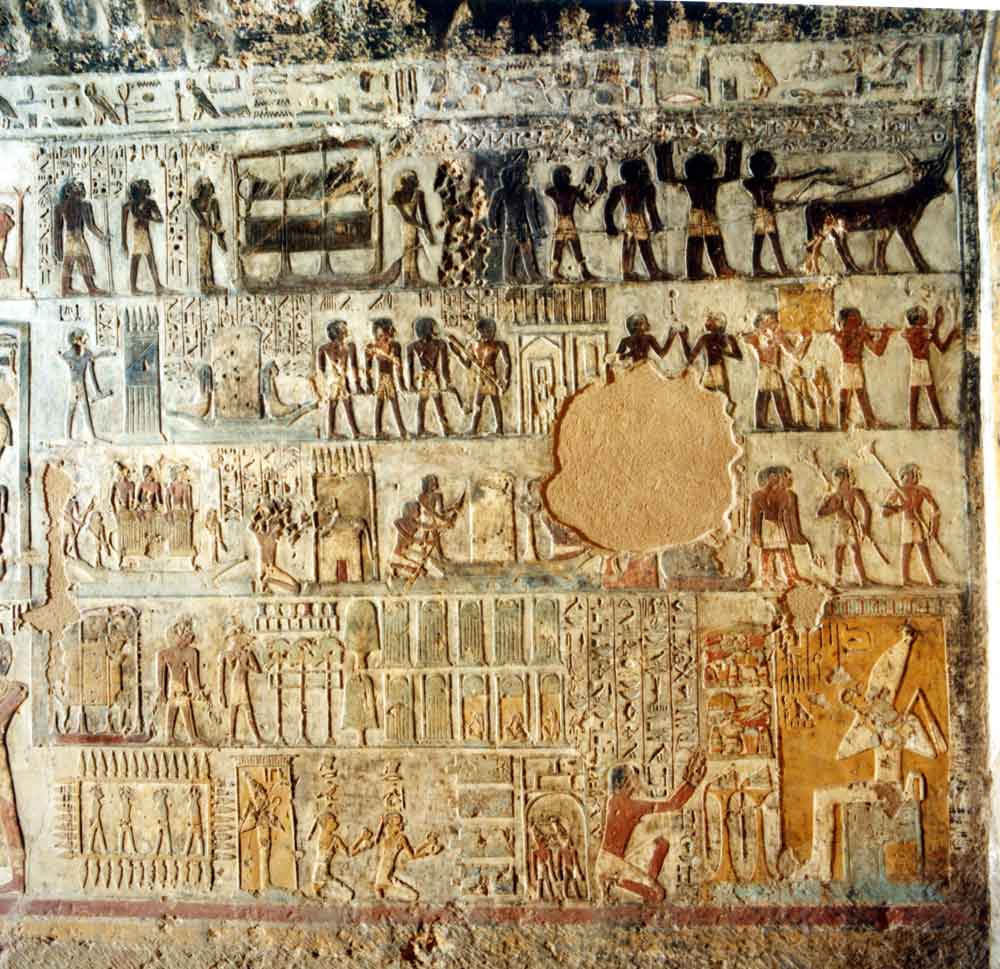  Tomb of Paheri [img]http://www.inicia.es/de/alex_herrero_pardo/Najtmin_prof_mayor.jpg[/img] Prophet of Min & Isis Najtmin: Ancient Egyptians pounded FUFU   Syrians paying tribute, New Kingdom tomb relief.   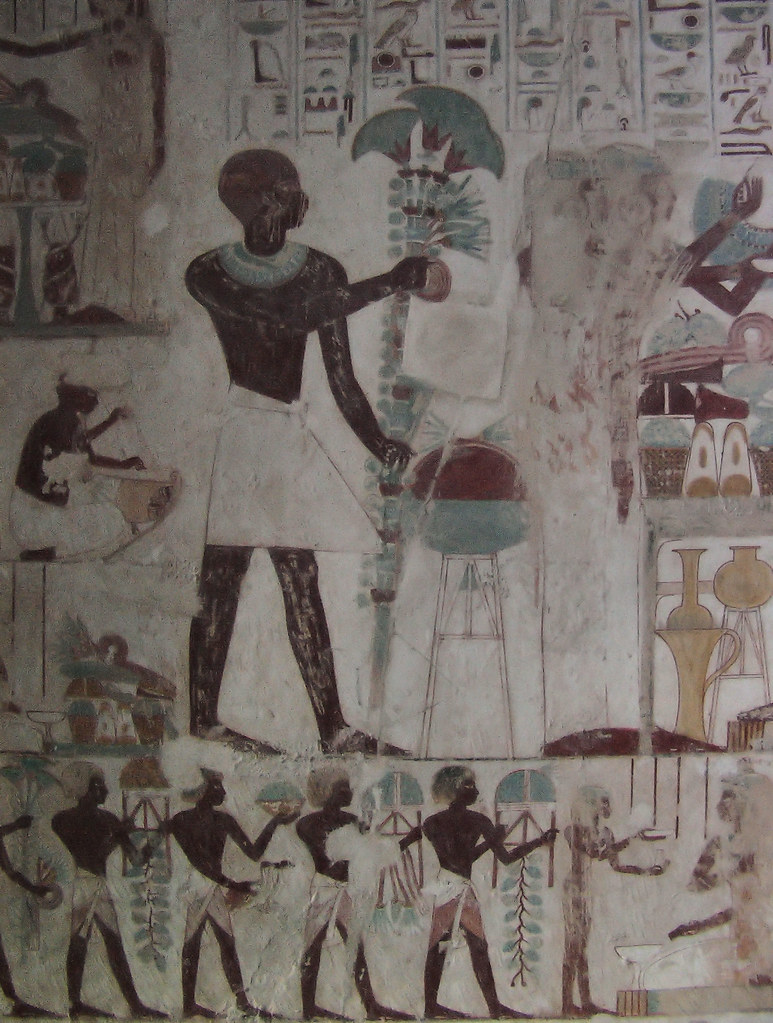 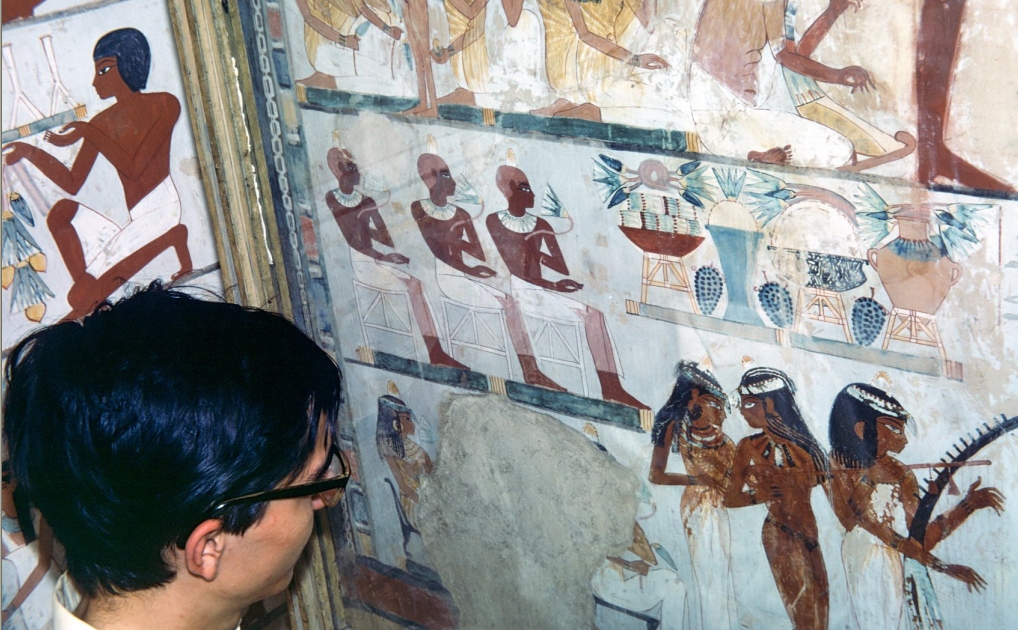 Tomb of Nakht 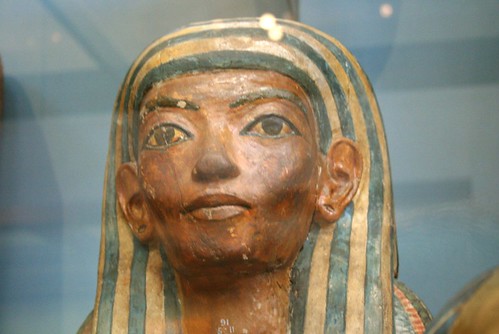 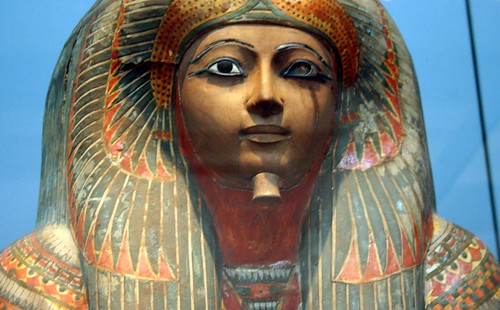 Note Somaloid look  [img]http://www.arts.kuleuven.be/egyptology/Henu/tomb_statue.jpg[/img] [img]http://pzacad.pitzer.edu/~hfairchi/courses/Fall2002/EGYPTSLIDES2_files/slide0015_image018.jpg?SSImageQuality=Full[/img] [img]http://www.bu.edu/anep/570.gif[/img]   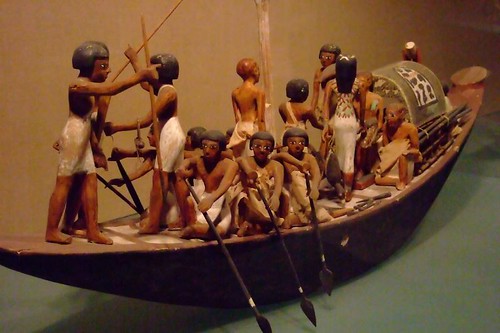  Tomb of king Tutunkhamun [img]http://pzacad.pitzer.edu/~hfairchi/courses/Fall2002/EGYPTSLIDES2_files/slide0015_image018.jpg?SSImageQuality=Full[/img] [img]http://egyptphoto.ncf.ca/em23_640.jpg[/img] Statue of King Nebhepetre II Mentuhotep 3 Likes 1 Share |
| Re: History: When Black Men Ruled The World by Nobody: 4:39pm On Nov 16, 2014 |
THE DOCUMENTARY EVIDENCE Note: All of Africa South of the Sahara was known to the ancient Greeks as ''Ethiopia''. Greek historian Diodorus Siculus. From his own statements we learn that he traveled in Egypt around 60 BC. His travels in Egypt probably took him as far south as the first Cataract. "They (the Ethiopians) say also that the Egyptians are colonists sent out by the Ethiopians, Osiris ["King of Kings and God of Gods] having been the leader of the colony . . . they add that the Egyptians have received from them, as from authors and their ancestors, the greater part of their laws." Diodorus's declared intention to trace the origins of the cult of Osiris, alias the Greek Dionysus also commonly known by his Roman name Bacchus. The Homeric Hymn "To Dionysus" locates the birth of Dionysus in a mysterious city of Nysa "near the streams of Aegyptus" (Hesiod 287). Diodorus cites this reference as well as the ancient belief that Dionysus was the son of Ammon, king of Libya (3.68.1), and much of Book 3 of the Bibliotheka Historica is devoted to the intertwined histories of Dionysus and the god-favored Ethiopians whom he believed to be the originators of Egyptian civilization. [emphasis added] (1st century B.C., Diodorus Siculus of Sicily, Greek historian and contemporary of Caesar Augustus, Universal History Book III. 2. 4-3. 3) Diodorus devoted an entire chapter of his world history, the Bibliotheke Historica, or Library of History (Book 3), to the Kushites ["Aithiopians"] of Meroe. Here he repeats the story of their great piety, their high favor with the gods, and adds the fascinating legend that they were the first of all men created by the gods and were the founders of Egyptian civilization, invented writing, and had given the Egyptians their religion and culture. (3.3.2). "Now they relate that of all people the Aithiopians [Ethiopians] were the earliest, and say that the proofs of this are clear. That they did not arrive as immigrants but are the natives of the country and therefore rightly are called authochthonous is almost universally accepted. That those who live in the South are likely to be the first engendered by the earth is obvious to all. For as it was the heat of the sun that dried up the earth while it was still moist, at the time when everything came into being, and caused life, they say it is probable that it was the region closest to the sun that first bore animate beings". [160,000-year-old fossilized skulls uncovered in Ethiopia are oldest anatomically modern humans.] Diodorus continues: "They further write that it was among them that people were first taught to honor the gods and offer sacrifices and arrange processions and festivals and perform other things by which people honor the divine. For this reason their piety is famous among all men, and the sacrifices among the Aithiopians are believed to be particularly pleasing to the divinity," "The Aithiopians [Ethiopians] say that the Egyptians are settlers from among themselves and that Osiris was the leader of the settlement.The customs of the Egyptians, they say, are for the most part Aithiopian, the settlers having preserved their old traditions. For to consider the kings gods, to pay great attention to funeral rites, and many other things, are Aithiopian practices, and also the style of their statues and the form of their writing are Aithiopian. Also the way the priestly colleges are organized is said to be the same in both nations. For all who have to do with the cult of the gods, they maintain, are [ritually] pure: the priests are shaved in the same way, they have the same robes and the type of scepter shaped like a plough, which also the kings have, who use tall pointed felt hats ending in a knob, with the snakes that they call the asp (aspis) coiled round them." "There are also numerous other Aithiopian tribes [i.e. besides those centered at Meroe]; some live along both sides of the river Nile and on the islands in the river, others dwell in the regions that border on Arabia [i.e. to the east], others again have settled in the interior of Libya [i.e. to the west]. The majority of these tribes, in particular those who live along the river, have black skin, snub-nosed faces, and curly hair". (Diodous Siculus, Bibliotheke, 3. Translated by Tomas Hagg, in Fontes Historiae Nubiorum, vol. II: From the Mid-Fifth to the First Century BC (Bergen, Norway, 1996)) Aristotle (384-322 B.C.E.) Greek philosopher, scientist, and tutor to Alexander the Great. Aristotle is said to have written 150 philosophical treatises. "Too black a hue marks the coward as witness Egyptians and Ethiopians and so does also too white a complexion as you may see from women, the complexion of courage is between the two." (Physiognomics, Vol. VI, 812a) Aristotle makes reference to the hair form of Egyptians and Ethiopians: "Why are the Ethiopians and Egyptians bandy-legged? Is it because the bodies of living creatures become distorted by heat, like logs of wood when they become dry? The condition of their hair supports this theory; for it is curlier than that of other nations, and curliness is as it were crookedness of the hair." (Physiognomics, Book XIV, p. 317) The evidence of Lucian (Greek writer, 125 B.C.) is as explicit as that of the previous writers. He introduces two Greeks, Lycinus and Timolaus, who start a conversation: Lycinus (describing a young Egyptian): "This boy is not merely black; he has thick lips and his legs are too thin . . . his hair worn in a plait behind shows that he is not a freeman." Timolaus: "But that is a sign of really distinguished birth in Egypt, Lycinus, All freeborn children plait their hair until they reach manhood. It is the exact opposite of the custom of our ancestors who thought it seemly for old men to secure their hair with a gold brooch to keep it in place." (Lucian, Navigations, paras 2-3) Herodotus (circa 400 bc) (Known to western historians as the Father of History) Herodotus also asserted that "the names of nearly all the gods came to Greece from Egypt . . . for the names of all the gods have been known in Egypt from the beginning of time . . . It was the Egyptians too who originated, and taught the Greeks . . . ceremonial meeting, processions and liturgies . . . The Egyptians were also the first to assign each month and each day to a particular deity, and to foretell the date of a man's birth, his character, his fortunes, and the day of his death . . . The Egyptians, too have made more use of omens and prognostics than any other nation. . ." (Herodotus, The Histories, 149-150; 152; 159). ''There can be no doubt that the Colchians are an Egyptian race. Before I heard any mention of the fact from others, I had remarked it myself. After the thought had struck me, I made inquiries on the subject both in Colchis and in Egypt, and I found that the Colchians had a more distinct recollection of the Egyptians, than the Egyptians had of them. Still the Egyptians said that they believed the Colchians to be descended from the army of Sesostris. My own conjectures were founded, first, on the fact that they are black-skinned and have woolly hair, which certainly amounts to but little, since several other nations are so too. But further and more especially, on the circumstance that the Colchians, the Egyptians, and the Ethiopians, are the only nations who have practised circumcision from the earliest times. The Phoenicians and the Syrians of Palestine themselves confess that they learned the custom of the Egyptians. And the Syrians who dwell about the rivers Thermodon and Parthenius, as well as their neighbors the Macronians, say that they have recently adopted it from the Colchians. Now these are the only nations who use circumcision, and it is plain that they all imitate herein the Egyptians. With respect to the Ethiopians, indeed, I cannot decide whether they learned the practice of the Egyptians, or the Egyptians of them (it is undoubtedly of very ancient date in Ethiopia). But that the others derived their knowledge of it from Egypt is clear to me, from the fact that the Phoenicians, when they come to have commerce with the Greeks, cease to follow the Egyptians in this custom, and allow their children to remain uncircumcised.'' (Herodotus, The Histories, Book 2:104) The opinion of the ancient writers on the Egyptians is more or less summed up by French Egyptologist Gaston Maspero The Dawn of Civilization (1894), when he says, "By the almost unanimous testimony of ancient historians, they [the Egyptians] belong to an African race which first settled in Ethiopia on the Middle Nile: following the course of the river they gradually reached the sea." The German scholar, Eugen Georg, in his book The Adventure of Mankind (1931) p. 121, tells us about the ". . . world-wide dominance of Ethiopian representatives of the black race. They were supreme in Africa and Asia. In upper Egypt and India they erected mighty religious centers and mastered a perfect technique in the molding of bronze --- and they even infiltrated through Southern Europe for a thousand years." In his book Egypt, British scholar Sir E.A. Wallis Budge says: "The prehistoric native of Egypt, both in the old and in the new Stone Ages, was African and there is every reason for saying that the earliest settlers came from the South." He further states: "There are many things in the manners and customs and religions of the historic Egyptians that suggests that the original home of their prehistoric ancestors was in a country in the neighborhood of Uganda and Punt." (Some historians believe that the biblical land of Punt was in the area known on modern maps as Somalia.) Stephanus of Byzantium, who is said to represent the opinions of the most ancient Greeks, says: "Ethiopia was the first established country on the earth, and the Ethiopians were the first who introduced the worship of the Gods and who established laws." Quoted by John D. Baldwin, Prehistoric Nations, p. 62. Arnold Hermann Heeren (1760-1842), Professor of History and Politics in the University of Gottengen and one of the ablest of the early exponents of the economic interpretation of history, published, in the fourth and revised edition of his great work Ideen Uber Die Politik, Den Verkehr Und Den Handel Der Vornehmsten Volker Der Alten Weld, a lengthy essay on the history, culture, and commerce of the ancient Ethiopians, which had profound influence on contemporary writers in the conclusion that it was among these ancient Black people of Africa and Asia that international trade was first developed. He thinks that as a by-product of these international contacts there was an exchange of ideas and cultural practices that laid the foundations of the earliest civilizations of the ancient world. Heeren in his researches says: "From the remotest times to the present, the Ethiopians have been one of the most celebrated, and yet the most mysterious of nations. In the earliest traditions of nearly all the civilized nations of antiquity, the name of this distant people is found. The annals of the Egyptian priests are full of them, and the nations of inner Asia, on the Euphrates and Tigris, have interwoven the fictions of the Ethiopians with their traditions of the wars and conquests of their heroes; and, at a period equally remote, they glimmer in Greek mythology. When the Greeks scarcely knew Italy and Sicily by name, the Ethiopians were celebrated in the verses of their poets, and when the faint gleam of tradition and fable gives way to the clear light of history, the lustre of the Ethiopians is not diminished." The French writer Constantin-François Volney (1757-1820), in his important work, The Ruins of Empires, extends this point of view by saying that the Egyptians were the first people to "attain the physical and moral sciences necessary to civilized life." In referring to the basis of this achievement he states further that, "It was, then, on the borders of the Upper Nile, among a Black race of men, that was organized the complicated system of worship of the stars, considered in relation to the productions of the earth and the labors of agriculture; and this first worship, characterized by their adoration under their own forms and national attributes, was a simple proceeding of the human mind." Volney's Ruins; or, Meditation on the Revolutions of Empires, Boston, J. Mendum, 1869 Flora Shaw's (alias Lady Flora Lugard) book is an extraordinary look at the history of Africa, which she gathered from countless sources, and one would imagine a great deal of it came from the British Library and from the archives of The Times of London, for whom she had for many years been the Foreign Political Correspondent. She had always been known to be an intensive researcher into her subject matter, and one wonders at the months and probably years she put into this undertaking, which became the reference work for so many future books on Africa. This book was first published 100 years ago showing the detail and descriptive power, and the greatness that Africa once was. Lady Lugard argues that: "When the history of Negroland comes to be written in detail, it may be found that the kingdoms lying towards the eastern end of Sudan (classical home of Ancient Ethiopians) were the home of races who inspired, rather than of races who received, the tradition of civilization associated for us with the name of ancient Egypt. For they cover on either side of the Upper Nile between the latitudes of ten degrees and seventeen degrees, territories in which are found monuments more ancient than the oldest Egyptian monuments. If this should prove to be the case and civilized world be forced to recognize in a black people the fount of its original enlightenment, it may happen that we shall have to revise entirely our view of the black races, and regard those who now exist as the decadent representatives of an almost forgotten era, rather than as the embryonic possibility of an era yet to come." "The fame of the ancient Ethiopians (ancient Kushites) was widespread in ancient history. Herodotus described them as the tallest, most beautiful and long-lived of the human races, and before Herodotus, Homer, in even more flattering language, described them as the most just of men, the favorites of the gods. The annals of all the great early nations of Asia Minor are full of them. The Mosaic records allude to them frequently; but while they are described as the most powerful, the most just, and the most beautiful of the human race, they are constantly spoken of as Black, and there seems to be no other conclusion to be drawn than at that remote period of history, the leading race of the Western World was a Black race." Lady Lugard/Flora Shaw Lugard, Asa G. Hilliard, III, A Tropical Dependency: An Outline of the Ancient History of the Western Sudan With an Account of the Modern Settlement of Northern Nigeria, Black Classic Press (1996) http://wysinger.homestead.com/blackegypt101.html 1 Like |
| Re: History: When Black Men Ruled The World by sukkot: 4:42pm On Nov 16, 2014 |
SirShymex:imhotep was actually joseph in the bible. this was when the jews ( negros ) were living in egypt for 400 years. peep this link brah http://the-red-thread.net/joseph-imhotep.html |
| Re: History: When Black Men Ruled The World by Nobody: 4:43pm On Nov 16, 2014 |
nora544: I know there's a difference between modern Hebrew and the ancient Hebrew. However, my point is that: we can't judge the race of the Hebrews based on today's speakers since, modern Jews are mostly European converts and Germanic. It's like all the tribes that make up ethnic English today bar the very few with Roman ancestry. Does the fact that they speak English, which has more Roman (Latin) and Greek influence than anything Germanic make them Roman or Greek? The language doesn't negate the fact that they're Germanic. |
| Re: History: When Black Men Ruled The World by nora544: 4:45pm On Nov 16, 2014 |
SirShymex: Moor, in English usage, a Moroccan or, formerly, a member of the Muslim population of what is now Spain and Portugal. Of mixed Arab, Spanish, and Amazigh (Berber) origins, the Moors created the Arab Andalusian civilization and subsequently settled as refugees in North Africa between the 11th and 17th centuries. By extension (corresponding to the Spanish moro), the term occasionally denotes any Muslim in general, as in the case of the “Moors” of Sri Lanka or of the Philippines. The word derives from the Latin Maurus, first used by the Romans to denote an inhabitant of the Roman province ... so it was not a black man from the sub sahara. |
| Re: History: When Black Men Ruled The World by Nobody: 4:46pm On Nov 16, 2014 |
sukkot: I don't like using the Bible for academic discourse cos of the allegorical names,and how a lot of things have been twisted. But ImHotep still remains the greatest genius to ever walk this planet!  2 Likes |
| Re: History: When Black Men Ruled The World by nora544: 4:48pm On Nov 16, 2014 |
SirShymex: sorry that is not tru read about the history of the jewish from russia and that you will see that you are wrong. |
| Re: History: When Black Men Ruled The World by Nobody: 4:48pm On Nov 16, 2014 |
nora544: And what colour were these inhabitants of that Roman province? They were blacks. And they continued using the term for black folks. Until recently when the English language bastardised the usage - just as the word "ni.gger" was bastardised during slavery. 1 Like |
| Re: History: When Black Men Ruled The World by Nobody: 4:50pm On Nov 16, 2014 |
[size=15pt]Papyrus of Maiherpri Circa 3600 BC, showing advanced black African literacy 2,800 years before Greece, the first white civilization.[/size] ..................... Maiherpri was buried in a Royal Tomb in the Valley of the Kings, the royal necropolis. The mummy was unwrapped in March 1901, revealing a very dark skin with woolly hair. In Maiherperi's tomb, a papyrus was found depicting him with literally "blackish" skin. The papyrus in question was the Egyptian Book of the Dead. 3 Likes 1 Share |
| Re: History: When Black Men Ruled The World by Nobody: 4:53pm On Nov 16, 2014 |
nora544: Nah, the Russian Jews are different. They're Kazan Jews. I was alluding to the Ashkenazi Jews and they make about 80% of all Jews. Before the 2nd world war, they were about 91% of all Jews. And they're Germanic folks from Europe. |
(1) (2) (3) (4) (5) (6) (7) (8) (9) (10) ... (13) (Reply)
OAU Female Student In Batman Outfit (Photo) / List Of JAMB Cut-Off Marks For All Universities, Polytechnics, Colleges / Meet Stephanie Idolor That Interviewed Success, The Sapele Schoolgirl
(Go Up)
| Sections: politics (1) business autos (1) jobs (1) career education (1) romance computers phones travel sports fashion health religion celebs tv-movies music-radio literature webmasters programming techmarket Links: (1) (2) (3) (4) (5) (6) (7) (8) (9) (10) Nairaland - Copyright © 2005 - 2024 Oluwaseun Osewa. All rights reserved. See How To Advertise. 167 |


